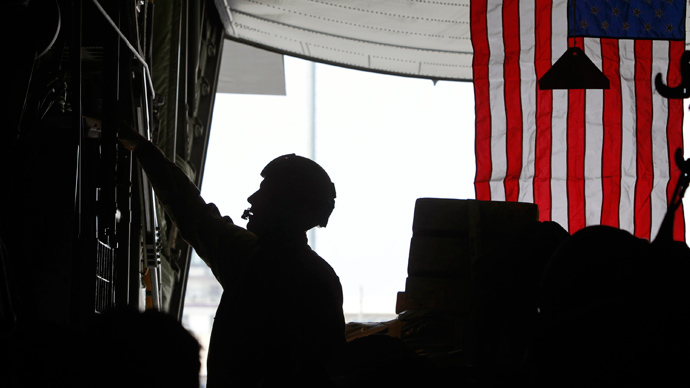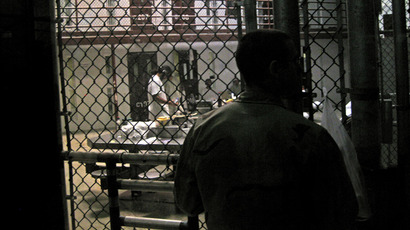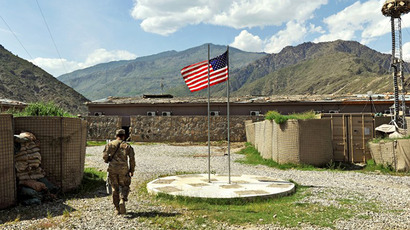‘The Other Guantanamo’ - Indefinite detention at Bagram Air Force Base

Prisoners trapped in indefinite detention at Bagram Air Force base have experienced significant emotional and financial hardship as a result of their murky legal status at the US outpost in Afghanistan, according to a new report.
Justice Project Pakistan (JPP), a Pakistani legal organization representing 11 of the approximately 60 non-Afghan detainees held at Bagram, wrote that they “endure emotional, economic, and social burdens from the long absence of their loved ones, all worsened by the restrictions the US military imposes on communication.”
Known as “The Other Guantanamo,” Bagram held over 3,000 inmates at its peak. Prisoners were denied the rights provided in the US criminal justice system as well as the formal protections afforded to a prisoner-of-war.
The US military transferred control of the base to Afghanistan in March 2013 but has continued to hold roughly 60 individuals under the auspices of war authority. There are approximately 3,000 Afghans remaining at the base.
Sarah Belal, the director of JPP, told Rolling Stone magazine that the conversations around the legality of Bagram and Guantanamo Bay in Cuba inevitably overlook the way people are treated inside the facilities. The report assembles information, including family testimonials, about the men who are accused of posing a threat to US national security.
“The detention system and US narrative surrounding it, is intentionally dehumanizing and seeks to erase the humanity and histories and individualities of the victims of she policies,” she said. “By focusing on the accounts of the families of the detainees, we are challenging the US narrative (which is based largely on classified evidence, hearsay, etc.) of these guys being ‘bad men’ and terrorists by tracing out their histories, gathering their family histories and compiling accounts of their lives.”
Detainees have been kept in large group cells that hold as many as 30 individuals at once. Different nationality groups make up each cell, separating Afghan inmates from Pakistani inmates, etc.
About 50 of the 60 prisoners still under US control are Pakistani. The report admonishes the Pakistani government for failing to lobby the US to return citizens to their home.
Much of what has occurred at Bagram before the Afghans assumed control after years of delay is simply unknown. A former guard denied that torture took place and that “Abu Ghraib is over,” a reference to the infamous prison abuse that marred the Iraq war.
The source told Rolling Stone guards do not have access to the intelligence files, but some of the detainees “might be there for a false passport,” although some of the inmates were certainly militants of radical Islam.
While the detainees do not have their own lawyers, detainee review boards (DRBs) were instituted in 2009. The panels, composed of US administration officials, not court members, were meant to determine which inmates needed to be kept in custody.
“The DRBs were a joke, another way to humiliate us,” wrote one man named Ayaz in the report. “At my DRB they said I was a suicide bomber and that I want to bomb the USA…After the hearing the Americans would tell me the result within a month and whether I would be sent back to Pakistan or would have to stay there for 6 more months. The only evidence they had against me is what they first forced me to sign at [a US military base in] Paktika [province].”
Families of the men, however, bear much of the strain for their incarceration.
“For all the families interviewed, their relative’s detention meant they are robbed of someone who provided substantial financial support, and was often the family’s primary breadwinner,” the report explained. “Many are large, traditional families with relatives living together in the same house, often in Pakistan’s urban slums or poor rural areas where families must pool their incomes to make ends meet. The loss of a major income earner has forced young children to give up their education and elderly family members to return to the workforce.”
Belal wrote in a press release that it should fall on US authorities, however, to decide what to do with the detainees by 2014.
“These individuals are trapped in indefinite, illegal detention,” she wrote. “The US and other governments have the means to bring this to an end – it is time that they and the public have the will.”















